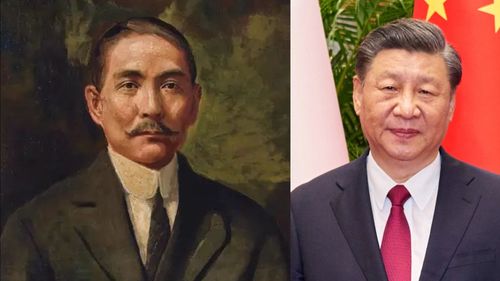Sun-Yat Sen’s Warning To Leaders of Modern China
Dec 11, 2023 · 2 mins read
0
Share

In Sun-yat Sen’s classic book, Three Principles of the People (1925), he addresses the view that China was not suited to being a republic, like the United States.
Save
Share
Sun claims that both Confucius and Mencius were exponents of democracy, or at least the idea that kings and emperors required public consent to rule. Thus Democracy (Minquán) became the second of his three ‘principles of the people’.
Save
Share
Mencius had said, “The people are the most important element of the state, the territory comes next, and the king last.” If the king treated people poorly he was no longer the sovereign, and as such deserved to be overthrown.
Save
Share
By ‘democracy’, Sun did not mean one person-one vote, rather the sovereignty of the people, a concept which was in line with Confucius and Mencius, and which allows today’s Communist Party in China to claim that it is ‘democratic’.
Save
Share
In relation to his third principle, People’s Livelihood (Minshēng), Sun did not agree with Marx that history is simply a matter of the oppressors and the oppressed. In America and Europe the working classes had enjoyed major improvements in social conditions and living standards
Save
Share
Sun’s idea was to combine capitalism and socialism to build a modern Chinese civilization, blending state controls of land and the distribution of resources to ensure minimum levels of prosperity, with the dynamism of capital (even foreign capital) and technology.
Save
Share
Whereas Taiwan became red-blooded capitalist in the image of the United States, Sun’s vision of a nationalist China that blended a market system with socialist principles (“Socialism with Chinese characteristics”) did come true on the mainland.
Save
Share
Sun-yat Sen was proud of the fact that China had often resisted invading other countries. Instead its power as a great civilization had attracted ‘tributary states’ that admiringly volunteered their allegiance.
Save
Share
This ‘soft power’ attracted rather than compelled neighbors, and was in contrast to the militarist and imperialist approach of the West. Today’s version of this is China’s Belt and Road Initiative, which aims to help smaller states develop in exchange for loyalty.
Save
Share
The Chinese Communist Party knows that its primary role is not geopolitical or imperial but keeping the population happy and prosperous. This is entirely consistent with Sun’s vision. So is his warning that when national leaders overstep their mark, they risk popular uprising.
Save
Share
0